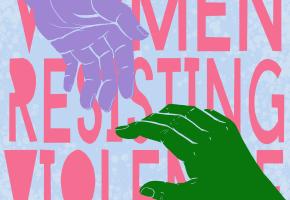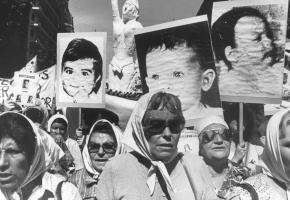The thing to ask about the recent social explosion in Chile is ‘why didn’t this happen before?’ For years, at least since the 2006 revolt of the ‘penguins’, the secondary school students, there have been massive marches. Hundreds of thousands of people turned out to demonstrate against the pension system (‘No more AFP’). There was the march of patients against the disproportionate price of medicines (double or triple the prices charged by the same international drug companies to patients in Argentina). Education saw a second huge uprising in 2011. The Mapuche people, who were victims of savage repression, kept up their resistance. ‘Plan Hurricane’, a police frame-up acknowledged as such by the present government, blamed Mapuche leaders for actions in which they took no part. The cold-blooded assassination of Camilo Catrillanca was portrayed as a case of ‘caught in cross-fire’. The list of abuses by successive governments is a long one.
Chile has had a good rate of growth. People have made progress on every indicator. The last census shows the growth in average floor-area of housing, of houses connected to mains electricity, drinking water supply to the home and an increase in the number of years of education completed by families. In Latin America, Chile tops the UN Human Development Index.
The problem with a country which has a per capita income of almost US$16,000, the highest in the region, is that, as we say here, ‘the pig wasn’t properly shaved’. Some people receive 30 or more times as much as others.
Chilean poverty is invisible. As people are living better, they can afford things that were hitherto unthinkable – such as mobile phones. Thirty years ago, most people didn’t even have a land-line. Now, though, people have to pay for their mobile contracts. Car use has increased from one for every ten people to one for every four. But car owners must pay the price of petrol and the inevitable road tolls. A trip from Santiago to Chiloé [about 760 miles] costs more than US$100 in tolls.
All this has led to a vast increase in household debt at extortionate rates of interest, up to 40 per cent per annum. The poorest 40 per cent of the population spends 28 per cent of their income servicing their debt. The big stores make little money from the sale of products – all their profit is in extending credit.
It’s not just the bad distribution of income. As the saying goes, a fair law entails no hardship. One of the great scandals has been that in the eyes of the law, businessmen who have committed crimes such as colluding in price-fixing or illegally financed political campaigns, the sentence is ‘classes in ethical conduct’ where as for ordinary people, minor crimes mean a mandatory prison sentence.
In November the price of a metro fare in Santiago was raised by 30 pesos. Public transport consumes 18 per cent of the total expenditure of the poorest quintiles of the population. The rise was set by an algorithm which takes as central variables the prices of petrol and of the dollar. This led the government to claim that this was a purely technical decision, not a personal initiative.
In response, thousands of young people called for fare evasion and began to jump over the ticket barriers. The government’s response? The minister of economics advised workers to travel first thing in the morning to take advantage of lower fares. Young people were threatened with prosecution for fare evasion. In a country where the wealthiest elude and evade paying their taxes, indignation boiled over. Piñera was dubbed the evader-in-chief.
In any case, this was the straw that broke the camel’s back. The protest became widespread and what had started as a specific economic demand escalated into an unprecedented general social mobilisation. The government reversed the fare rise, but by then things had moved on. Millions of Chileans marched throughout the country, voicing dozens of demands.
In many sectors prices in Chile are similar to those in Spain, but the minimum wage is only around US$400. Faced with the scale of the mobilisations, the authorities proposed an increase of US$70 paid by the treasury. But demands had now moved to the level of national politics: the protestors were demanding a change in the constitution.
Chile’s constitution lays down that the role of the State is subsidiary. Specifically it stipulates that ‘the State and State organizations may undertake or participate in business activities only if specifically authorized by a law passed by an enhanced majority’. Such a majority is unattainable without the consent of the right. In that way the right has the power of veto over the economic initiatives of governments. This is the heritage bequeathed by the [Pinochet] dictatorship which left everything well tied down to preserve the privileges of the class which supported the [military] coup.
Dear Friends, I thought it worth while to send you this summary of what is happening, as I see it. I am very happy and full of hope that something good will come out of this revolt.
This article was first published by Latin American Bureau. For more great articles visit www.lab.org.uk
















